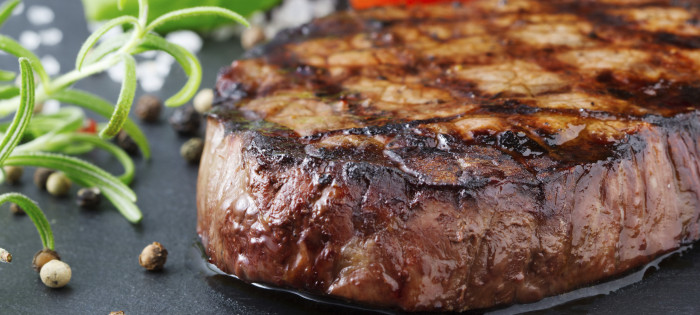
Yes, you can eat meat!
When I work with clients I often neglect to state upfront “yes, you can eat meat and be healthy” because it feels so logical and obvious to me. However, I’m often reminded this mindset isn’t frequently assumed to be a given by many.
Clients will often say something like “I’m fine with making changes but I won’t give up meat” and my reaction is “great, I won’t ask you to!” So let me be clear:
YES, YOU CAN EAT MEAT AND BE “HEALTHY!”
Now that’s settled, let’s discuss some KEY guidelines to eating meat.
1. QUALITY MATTERS!
Eating quality meat is key to keeping it healthy. Be sure to purchase organic, grass-fed, pasture-raised chicken, beef, lamb, pork and wild seafood, not farm-raised. Animals that are allowed to graze, eat naturally and are NOT given cheap grain feed (including corn) have higher ratio’s of heart and brain supporting Omega’s 3’s and 6’s. Conventionally raised and factory-farm animals have much lower Omega 3’s and significantly higher Omega 6’s — this is the opposite of what you want! We need both Omega 3 & 6 in a specific ratio so when food is overabundant in pro-inflammatory Omega 6’s, it’s not good. Organ meat contains more healthful nutrients than muscle meat so be sure to include liver, heart and tongue into meal planning, occasionally. Full disclosure: I am still working on eating organ meats. I don’t enjoy the texture of fatty meat so I am diligently looking for the right recipe/restaurant!
2. SIZE MATTERS TOO! (pun intended)
Even though meat can be a healthy source of nutrients, let’s not start eating bacon cupcakes for breakfast, 12″ turkey subs for lunch and a ribeye for dinner every day. The largest serving of food on your plate should be vegetables in a variety of colors. Protein should be equal to the size of your palm, you’re aiming for about 4oz of protein per serving (equals roughly 21g of protein — about 7g of protein for every 1oz). Carbohydrates should be limited to a 1/2 cup per serving and include foods like beans, sweet potatoes and other starchy vegetables (some of which contain plant protein!).
3. BIO-INDIVIDUALITY MATTERS ALSO!
The second core concept we learned in nutrition school is the idea of bio-individuality; that is — what works for one person may not work for another. This includes the consumption of meat as well. Meat may not be for everyone based on cultural, behavioral and other health factors like kidney disease. That’s OK! There are plenty of plant based sources of protein for them to stay healthy. For us omnivores and carnivores, meat can be our best friend when it comes to weight loss, healthy cells and happiness! I don’t know about you but a perfectly cooked steak or super delicious roasted pork shoulder always makes me happy! 🙂
I understand the confusion about whether or not it’s healthy to eat animal protein; there is a lot of compelling information on both sides of the argument. I was a vegetarian for a while and I did it because I thought it was the only way or the best way to be “healthy.” I was wrong. I gained weight, experienced acne problems and had low energy. I, like a lot of other vegetarians eat the wrong kinds of plant food — too much gluten-filled carbs to make me feel satiated, highly-processed fake meat made from soy because it’s marketed as healthy and packaged foods for time and convenience.
If you’re curious to know how you’ll feel on a strictly plant based diet, try it for a week or two and see how you feel. Be sure to supplement with tons of variety in the plants you eat, aim for lots of colors too!
To be clear, I don’t eat meat with every meal — I’m a semi-vegetarian a few meals per week at least. I’ve found a balance that works for me, have you? I’d love to hear your comments, thoughts and personal stories around the meat debate, please share!
Share Your Thoughts